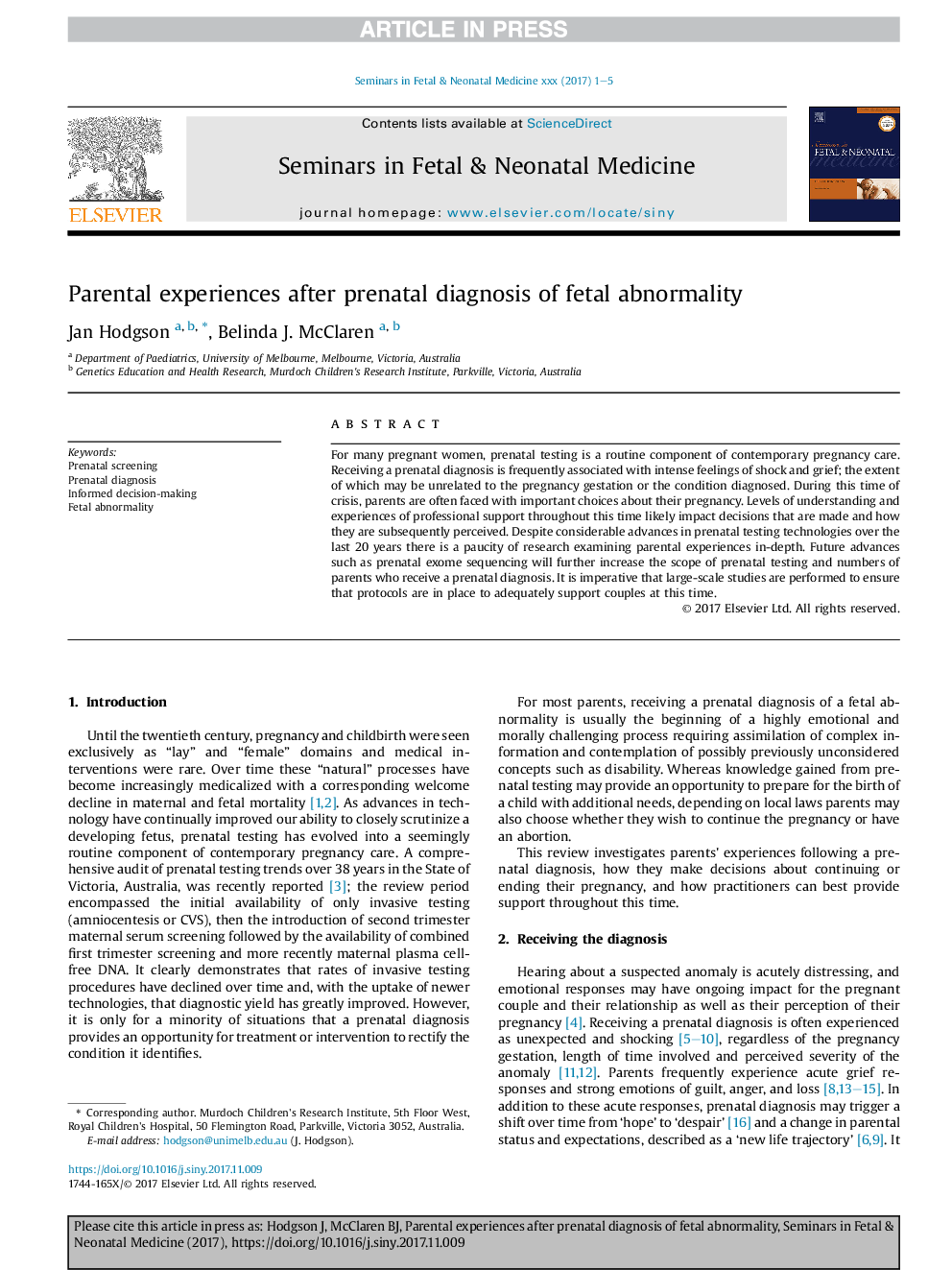| Article ID | Journal | Published Year | Pages | File Type |
|---|---|---|---|---|
| 8784300 | Seminars in Fetal and Neonatal Medicine | 2018 | 5 Pages |
Abstract
For many pregnant women, prenatal testing is a routine component of contemporary pregnancy care. Receiving a prenatal diagnosis is frequently associated with intense feelings of shock and grief; the extent of which may be unrelated to the pregnancy gestation or the condition diagnosed. During this time of crisis, parents are often faced with important choices about their pregnancy. Levels of understanding and experiences of professional support throughout this time likely impact decisions that are made and how they are subsequently perceived. Despite considerable advances in prenatal testing technologies over the last 20 years there is a paucity of research examining parental experiences in-depth. Future advances such as prenatal exome sequencing will further increase the scope of prenatal testing and numbers of parents who receive a prenatal diagnosis. It is imperative that large-scale studies are performed to ensure that protocols are in place to adequately support couples at this time.
Related Topics
Health Sciences
Medicine and Dentistry
Obstetrics, Gynecology and Women's Health
Authors
Jan Hodgson, Belinda J. McClaren,
